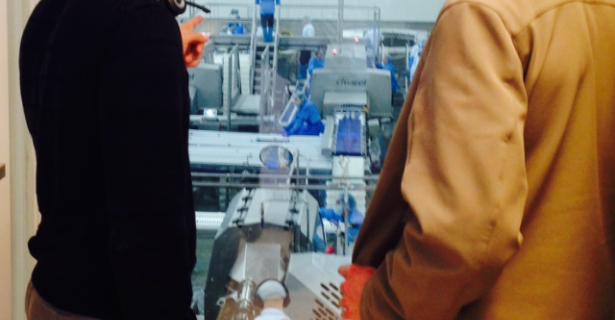Amplifying strengths
Michael Porter of Harvard University defined a cluster as a geographically proximate group of interconnected companies and associated institutions in a particular field (Porter, 2000). Clusters are a way for local groups to be competitive in the global marketplace. The Iceland Ocean Cluster builds upon this definition by supporting social ventures, from 100% cod utilization to green marine engine technology. As an Empower Fellow with the Institute for Global Leadership, I have been inspired by several positive experiences on how to amplify existing strengths. These observations on solutions, hypotheses, and products, may be timely as leaders from ports like New Bedford, MA and Portland, ME, seriously consider adopting the cluster model.
Solutions
What began as a casual conversation transformed into a high-speed solution. For the past year I have contributed to an ocean health start up. Initially, we struggled to find a way to equip boats with sensors without interrupting the hydrodynamics of the vessels. “Why not repurpose the existing navigation systems?” a marine engineer asked. Within minutes this expert had reached a conclusion that took our terrestrial team several months to discover. I wonder if technology like Piazza (or actual bulletin boards) could facilitate these leaps for others by providing official forums for questions and answers that others could see and build on. Porter encourages increasing the innovative and productive capacity of cluster participants. Nothing can replace the serendipity of coffee conversations, but formalizing knowledge exchanges may add a shot of espresso to problem solving.
Hypotheses
While visiting an Icelandic fish processing plant I heard a story from a former fishermen turned cluster entrepreneur. He noticed differences in cod at sea before the scientific community accepted that there could be more than one cod species around Iceland. The fishermen had a gut hypothesis that the difference in weight and meat density along with the seeming randomness of cod worm infections pointed to multiple species. I wonder if the Iceland Ocean Cluster could develop a log for observations and relationships with research institutes and universities to test them. Porter encourages new types of dialogue across businesses, schools, and other agencies. While the new ideas may outnumber the available researchers at the very least a pool of ideas could be documented with time stamps. New hypotheses should always be collected because the next Darwin may be a fisherman.
Products
One of the highlights of the Iceland Ocean Cluster tour is a pushcart with high-end Icelandic products. Despite the beauty of the array it is only a display. Recently I heard visitors ask to purchase an enzyme marine collagen cream for reducing wrinkles. I wonder whether a small online shop could be created on the Ocean Cluster site that would then filter orders into the mailboxes of individual tenant companies. Just like the MSC label, the Cluster could also design a seal of approval for innovative and sustainable products, starting in house and expanding externally. This could reduce what Porter calls imitation and rivalry. Depending on site traffic, having “1-click crème” could boost commerce and help the cluster discern buyer trends more quickly.
Testing Opportunities
Q&A bulletins, increased partnerships with research organizations, centralized online commerce and a seal of approval may be options for the Iceland Ocean Cluster to amplify existing strengths. Instead of leaving tacit knowledge untapped, hypotheses untested, and products unsold, the IOC could pilot new methods in low stakes environments. For example, a single i-Pad could be dedicated to product sales in the cluster lobby (with all inventory and shipments happening behind the scenes); a bulletin board could be put up around the coffee machines as a public and collaborative question and answer forum; finally a student team from a local university could be invited in to tour the Cluster on a Friday and collect hypotheses from Cluster members in a relaxed manner.
As Porter argues clusters offer opportunities to improve productivity and support rising wages, but if they don’t incorporate new ideas they may become stagnant. Just as an organism emerges, develops, and declines, a cluster has a lifespan. By experimenting in small ways, a cluster like the Iceland Ocean Cluster may be able to amplify existing strengths. By remaining open to new ideas, iteratively testing their validity, and discarding anything that isn’t useful, a cluster may actually increase and prolong its competitiveness in the global marketplace.
Source:
Porter, Michael Location, Competition, and Economic Development: Local Clusters in a Global Economy journal, Economic Development Quarterly, vol 14, no.1, pp 15-34, 2000

